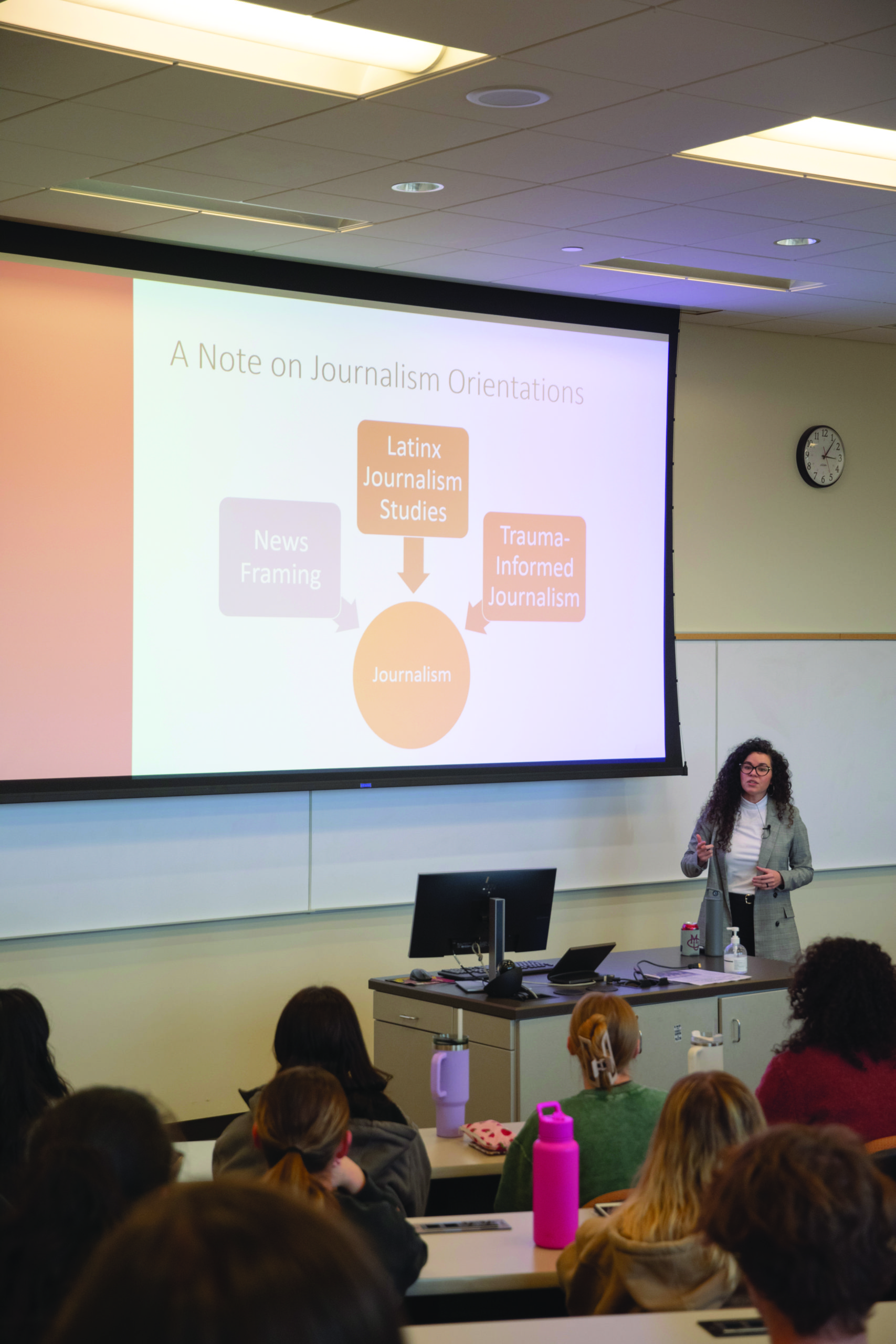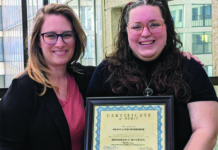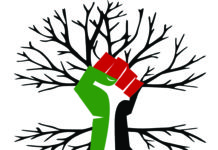Leandra Hernandez, PhD, is doing ground- breaking work on a cultural epidemic facing the Americas.
Colorado Mesa University (CMU) assistant professor of mass communication Dr. Rhema Zlaten invited Hernandez to CMU to present on journalism ethics and reproductive injustice on March 13.
She covered her research in combating feminicidios, or feminicides, a sociological term for a cultural pattern of femicide. Murders of women collectively developed a cultural mythos in Mexico. Hernandez explained this mythos and how it’s championed by unregulated and sensationalist ‘violence journalism.’
“As a former journalism practitioner myself, I’ve always been interested in questions of culture and representation in news,” explained Hernandez. “[That is,] thinking about how we can better represent the stories of those who have been subjected to violence or maybe the memories of those who were killed through violent means, then also thinking about helping journalists feel more comfortable and more supported when they have to tell these stories, which are oftentimes harder to write about than others.”
The blame for a given murder ultimately falls on the perpetrator. However, the social impact it has is often the direct result of media and news coverage surrounding it.
According to Hernandez, these murders take on a pattern of revenge against women’s success, sexuality and reproductive ability, reflecting a broader culture of violence against women. Feminicide murders are often sensationalized in journalism with graphic imagery of the victims on display and titles meant to shock the public into paying attention. One of the major issues in this area is that Mexico currently lacks ethical guidelines surrounding murder coverage, let alone legal obligations.
“I would like to see more legislative and political conversations about combating violence against women,” said Hernandez. “I think awareness is an important start; I think we also need better policies and procedures in place to support women who are survivors of violence. For journalists, I would like to see more conversations about what trauma-informed journalism looks like in practice.”
Hernandez has authored and co-edited a number of books in the past studying reproductive injustice, latino communications and the experiences of military spouses. She’s planning to release a book on feminist news framing next year.
“[The book is] a framework or a toolkit, if you will, that talks about emotions and sensitive interviewing and things like that but I’m really more interested in having outcomes and conversations with the journalists who are actually doing the work.”






